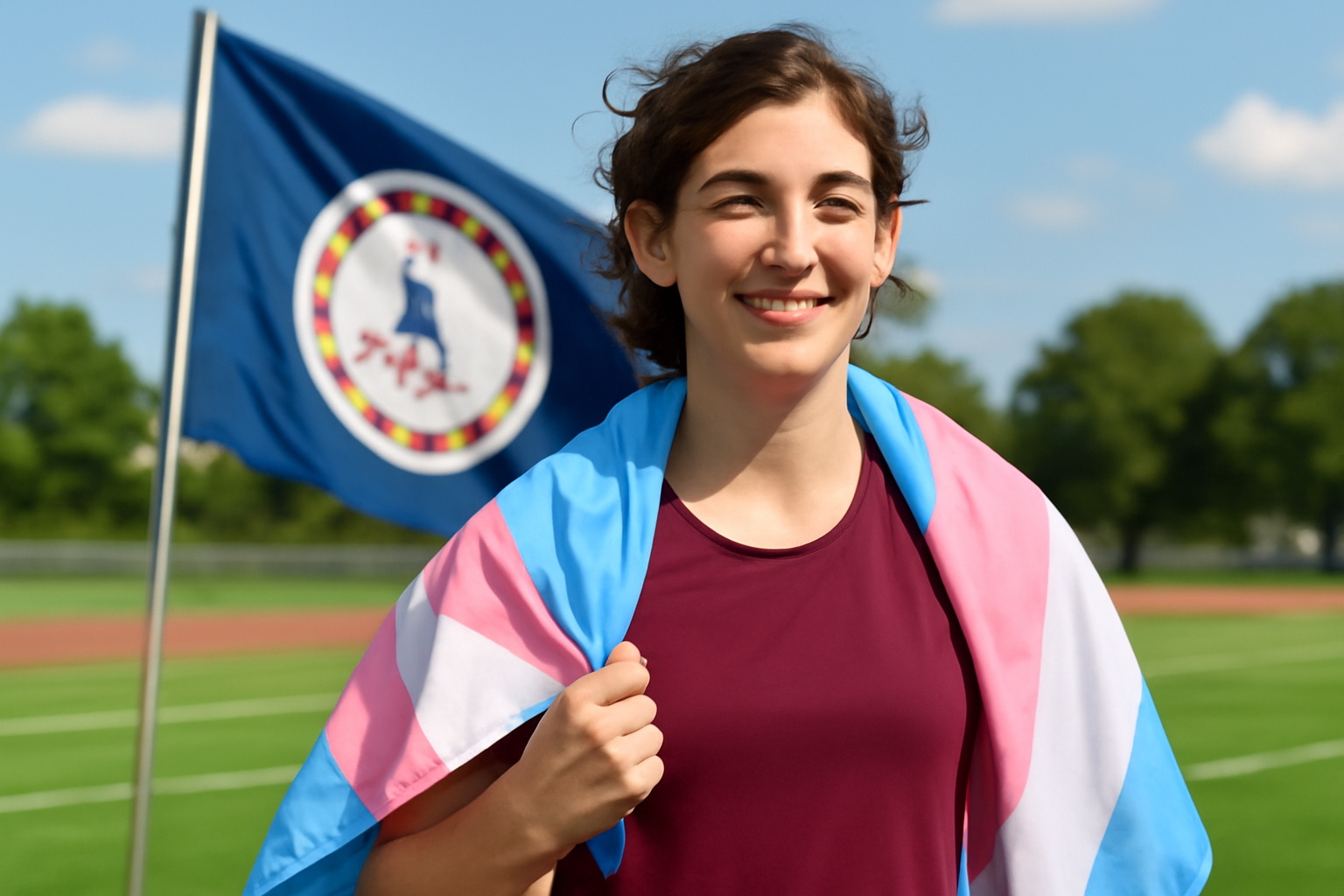
Virginia schools take a stand: Supporting transgender athletes
In a bold and commendable move, Virginia's high school athletic league has openly stated its backing and support when it comes down against recent federal directives and in favor transgender athletes. This support comes amid a heated debate sparked by a federal executive order aimed at barring transgender girls from participating in school sports across America.
This order, rolled out not long after a change in presidential administrations, threatens schools that allow transgender athletes with a loss in federal funding. But Virginia High School League (VHSL) isn't budgeing from its inclusive stance. They're holding fast, affirming that they won't be altering their policies any time soon.
Mike McCall, VHSL's communications director, put it plainly: "We have not seen or received anything regarding this executive order. We will continue following Virginia's current policy and law." This highlights a growing clash between local and federal positions on transgender rights and inclusion.
Critics argue that instead, this executive order undermines women's sports and discriminates against transgender people. One notable entity, The National Collegiate Athletic Association (NCAA), has aligned itself with this order, barring transgender women from playing in women-only college sports.
Virginia's choice stands out when compared with NCAA's. The state league's adherence and commitment steadfastly follows their existing rules, waiting possibly as court challenges rise up against this executive order. As this unfolds, it becomes clear that executive orders may not hold as much weight compared with laws passed by Congress.
The federal executive order: What's at stake?
The new executive order takes aim at transgender inclusion in sports via several measures. First, it proposes cutting off federal funds from schools not sticking with these fresh guidelines. Many educational budgets rely heavily on such funding, but it's no easy feat zeroing in on specific districts or organizations like VHSL due in part because state and local distribution adds complexity.
The order also directs a tricky maneuver by tapping both Secretary Of Education and Attorney General in enforcing specially tailored interpretations under Title IX. This interpretation rejects discrimination protections transgender athletes, pushing back against a notable Supreme Court judgment in 2020's Bostock v. Clayton County ruling recognizing gender identity and sexual orientation as sex discrimination within Civil Rights Act.
Legal experts foresee court challenges mounting up against this order and whether it's aligned alongside existing civil rights protection frameworks. The order further outlines meetings in order churning out "fair and safe" sports guidelines hosting major athletic associations and state attorney generals — yet critics remain skeptical if these meetings bring about meaningful change or simply echo administration's viewpoints.
Legal battles and advocacy on horizon
Historically speaking, presidential executive orders can face rough patches legally or procedurally, with some eventually getting rescinded or altered if deemed exceeding presidential authority limits. The usual implementation process involves intricate agency reviews leading opportunities ripe enough allowing lawsuits step forward.
As things develop further, Virginia stands out advocating LGBTQ+ rights through supporting transgender athlete participation amidst brewing federal resistance. This ongoing battle shines light broader picture fighting equality within sports and educational sectors while emphasizing advocacy combined with legal actions necessary upholding civil rights.
Legal battles and advocacy on horizon Historically speaking, presidential executive orders can face rough patches legally or procedurally, with some eventually getting rescinded or altered if deemed exceeding presidential authority limits. The usual implementation process involves intricate agency reviews leading opportunities ripe enough allowing lawsuits step forward. As things develop further, Virginia stands out advocating LGBTQ+ rights through supporting transgender athlete participation amidst brewing federal resistance. This ongoing battle shines light broader picture fighting equality within sports and educational sectors while emphasizing advocacy combined with legal actions necessary upholding civil rights.
Related Posts
Celebrate Mother's Day with a Fabulous Drag Brunch Extravaganza!
Looking high and low online and still stumped on how you're going all-out this Mother's Day? Why not shake things up a bit with a drag brunch? It promises tons more fun than brunch at home, with enough glitz, giggles, and good grub that'll make this Mother's Day one your mom won't soon forget. Celebrate mom with a dazzling experience This Mother's Day, why not dive headfirst with your mom right [...]
Prominent Athlete from Poland Opens Up About Identity in Emotional Social Media Post
A well-known Polish athlete recently took a brave step by sharing a deeply personal truth on social media, stirring emotions across both sports circles and beyond. This heartfelt revelation came through a touching Instagram post, where they opened up about their identity. This skier isn't just celebrated on slopes but admired off them too, thanks in no small part, now, because they've shown such [...]
Federal Grant Canceled Over California's Gender Identity Curriculum
Recently, California found itself at odds with federal authorities when a significant $12 million grant meant specifically as sex education funding was suspended. Why? The state refused demands that would exclude discussions on transgender issues and gender identity from its curriculum, fueling a heated debate over LGBTQ+ rights and educational content. The U.S. Department Health and Human Servic [...]